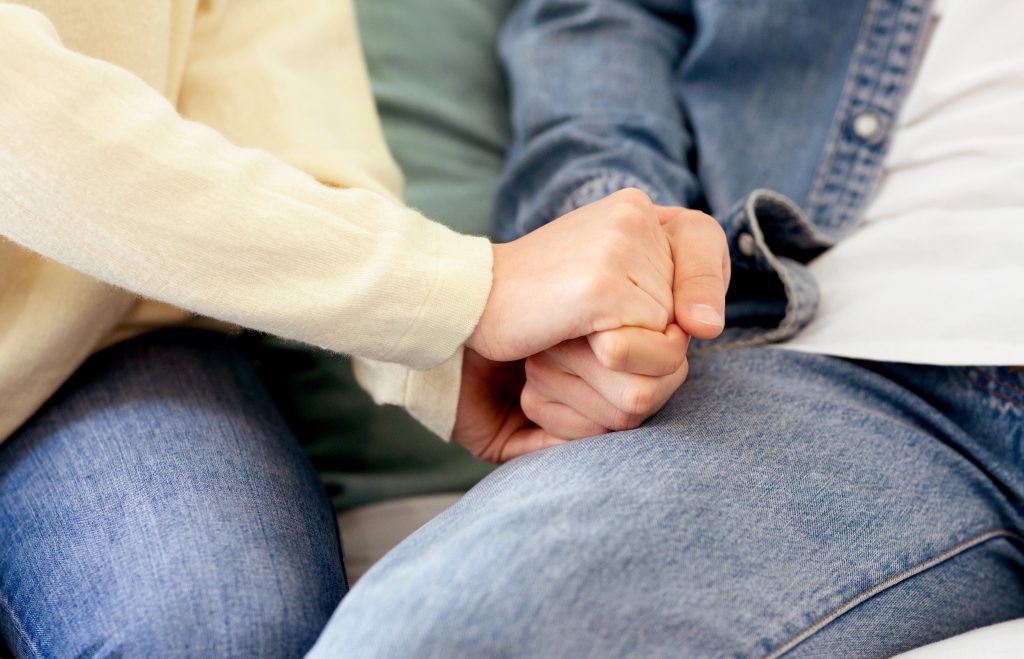
“Love is a biological imperative it’s as essential to our health as exercise, water, and food,” says neuroscientist Stephanie Cacioppo, PhD, author of Wired for Love. Yes, falling in love is not figurative; it’s a head-spinning, body-widening experience science is just starting to unravel. If you’ve ever wondered why your heart races at a text or why the world suddenly seems brighter, you’re not alone romantics and self-reflective souls have been chasing these answers for centuries.
So, what is it like to be in love? Spoiler alert: It’s not late-night texting and butterflies. From the wild ride of dopamine to the soft security of being profoundly known, love is a rollercoaster that’s all about chemistry, connection, and raw magic. Buckle up and discover the most astounding facts about being in love science-proven, real-life-tested, and a dash of that elusive magic.

1. Love Hijacks Your Brain Chemistry
Being in love puts your brain into fireworks explosion. In Helen Fisher’s fMRI study, parts of the brain replete with dopamine the caudate nucleus and ventral tegmental area are ignited when you see or think about your sweetie. That burst of dopamine releases that inexplicable feeling of satisfaction and longing, and love is as addictive as that song you can’t shake your head of. But there’s not only dopamine; oxytocin (the love hormone) and vasopressin hormones are also triggered, releasing trust, bonding, and relaxation. As another scientist described, “The need for love can be described as a natural high.” And that is the reason why falling in love feels like being at the top of the world, infatuated, and maybe even a bit out of control.

2. You Can’t Get Them Out of Your Head (and That’s Science)
Are you rehashing a conversation or inventing your person? Chill out, you’re not lovesick you’re your brain being smitten. By coincidence, the serotonin drops at the earliest phase of love, and the culprit chemical of intrusive thoughts and even that all-too-familiar “can’t eat, can’t sleep” sensation. As Lucy Brown, PhD, says, “Romantic love is actually a drive to fulfill a basic need.” And there you’ll spend hours interpreting a text or yearn for them so that you can be with them again. Love keeps your brain literally occupied and places your mate at the top of your mental play list.

3. The World Looks Brighter and More Hopeful
Life becomes more colourful when you are in love. As we can observe from research, love is optimistic, in which everything appears to be smaller than their issues and better for the future. You would discover that the sky looks bluer or even simple things look more exciting. This is not a mood swing, but a combination of oxytocin and dopamine to exponentially increase good feeling and stress relief. In the night, the little annoyances of life vanish, and an epidemic of hope and possibility ravage in their wake.

4. You Toss and Turn at Night Needing Physical Touch
Physical touch is not a luxury–it’s a biological imperative when you’re in love. Oxytocin, released during hugging, kissing, and sex, cemented bonds and feelings of safety. It is the hormone that makes you all warm-and-fuzzy-in-the-home-suburban-bliss when you are with the one you love. Testosterone and estrogen fuel lust and passion, but oxytocin after a bit of romance is what sustains couples long after the magic has worn off. That’s why every evening snuggle after work on a weekday feels like so much the solution to all things.

5. You’d Like to Sacrifice (and It Feels Amazing)
One of the strongest signs you’re in love is that you’ll sacrifice your own happiness for theirs. Attachment and empathy hormones fuel this desire to nurture, comfort, and even martyr for your beau. You might catch yourself altering your routine, venturing outside your comfort zone, or giving up things in small ways without even noticing. Like relationship coaches would say, this is not losing yourself but creating a relationship in which both of you triumph. There is nothing more important than seeing your partner shine.

6. You Envision the Future Together
Love has a way of illustrating the future with vibrant colors. When you are in love, you find that you still imagine life milestones such as vacations, holidays, and even old age with this person. This is not imagined; it is a projection of strong emotional bonding and compatibility. Daydreaming and making plans together, psychologists affirm, is a sign of secure long-term love. Your partner is the missing piece of the puzzle that at last slots into the jigsaw of life.

7. Love Helps You Be a Better You
You will be surely your best when in love. You might be more energetic, more loving, more receptive. Healthy love, we learn from the experts, lifts both of you up so that both of you will do your best without trying to “fix” or rebuild the other person. Respect and encouragement are the foundation of this transformation. Love does not eliminate your flaws, but it pushes you to be your best self and for the other as well.

8. You Feel Safe, Seen, and Accepted
Love is a sanctuary. The healthier you are with each other, the less you want to impress and the more you can be yourself. You no longer conceal your flaws and quirks and start being yourself, unadorned and naked. This sense of belonging creates security and confidence, the cornerstones of long-lasting intense intimacy. As Christiana Njoku, LPC, would say, “When they reach the stage of having you meet the family, friends, and significant people in their lives, then it is a sign they are falling in love with you.” It feels great to be loved without reservation.

9. Love Goes Through Different Stages
Being in love is not something that happens, but rather something that develops over a period of time and has numerous different phases. Experts talk of phases like attraction, romance, disillusionment, attachment, and mature love. Every phase incorporates brain chemicals and emotional shifts. Initial infatuation (hi, butterflies!) gives way to stronger attachment and finally to stable secure relationship. Reading these phases can carry you through the waves, with the knowledge that each phase even the atrocious or worse is building a healthy relationship.

10. You See (and Accept) Their Flaws
Your fiancé might be perfect during the honeymoon phase. But when love has mellowed, you learn their quirks and flaws. The secret? You continue to love them, and find those same quirks adorable. Real love is not idealizing; it’s deciding to love the whole of them and to accept them with all their flaws. That is what turns infatuation into long-term attachment. The ability to love someone’s flaws is the secret ingredient to deep, lasting love.

11. Love Makes You Stronger
Love’s not rainbows only it’s also weathering the storms. Science shows that the couples who make rituals, tell one another the truth, and have each other’s backs heal quicker from conflict. From anxious yearnings in the first days of new love to secure attachment’s safety, each step builds strength in good feelings. The best part? Love is not just what enables you to get through challenges—it’s what makes you stronger as a team.
Love isn’t a feeling it’s a living, breathing force that reprograms your brain, shifts how you see, and motivates you to be your absolute best.
From the whirlwind high of falling in love to the cozy, warm radiance of lasting love, being in love is one of life’s most richest (and richest) experiences. So, whether you’re basking in the glow of new love or reflecting on a long-term bond, remember: the science and magic of love are on your side, making every heartbeat, every risk, and every moment of vulnerability absolutely worth it.


